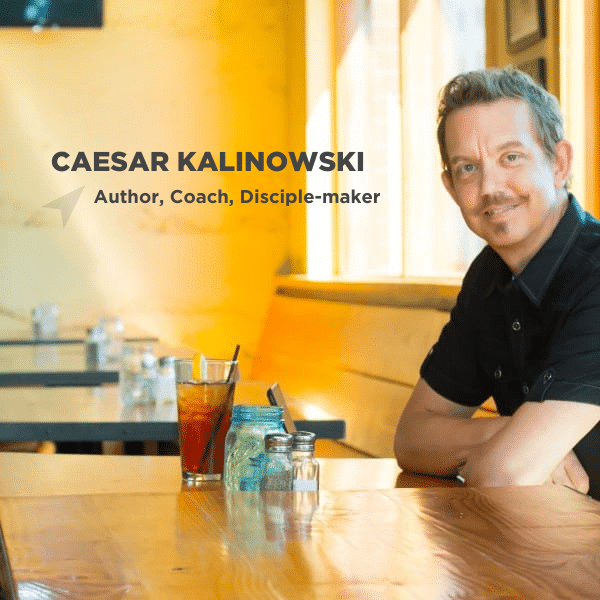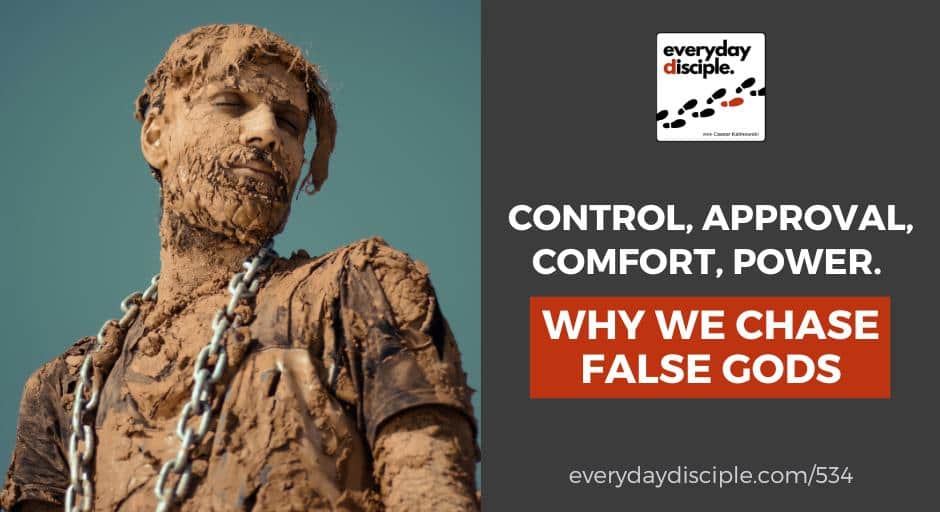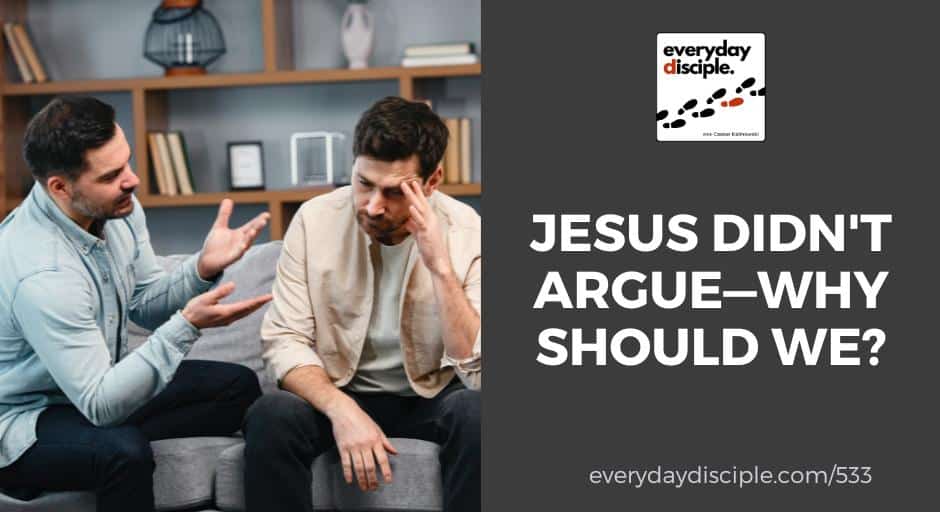

Afraid To Share Your faith?
Opinions are changing about what it means to share our faith, or proclaim the gospel. And the debate continues regarding the best methodology, and probably will into the foreseeable future.
But regardless of your methods and motives, one universal reason that many (most) people don’t seem to share their faith very often or in meaningful ways is fear of rejection.
Men’s & Women’s Ministry or Family Discipleship?
Men’s and women’s ministries have been separated in the church for years. But the church is a family. And when we disciple together, as a family in community, we experience deeper discipleship in every area of life.
In this episode of the Everyday Disciple Podcast, Caesar is joined by his wife Tina, and their friend and fellow disciple-maker, Barb Terry. He gets their perspective on women and discipleship. Are there differences? We find out that the answer is both “yes” and “no”.
In This Episode You’ll Learn:
- Why the church has traditionally separated men and women.
- The importance of women finding their “sisterhood” within community.
- Can women be effectively discipled by men?
- Why understanding our gospel identity leads to freedom for both women and men.
Control, Approval, Comfort, Power. Why We Chase False Gods
We all have hidden idols—big and small. An idol is anything that takes God’s place in your heart, absorbs your imagination, or promises what only He can give.
This week on the Everyday Disciple Podcast, we’re tackling the four root idols: control, approval, comfort, and power. You’ll learn how to identify and destroy them in your life.
Idols today aren’t statues or totems—they’re far more subtle. Listen when your heart says, “If I just had that, then my life would have meaning… then I’d feel valuable, significant, or secure.”
In This Episode You’ll Learn:
- A clear, practical definition of what idols look like in our lives.
- The four root idols that fuel all forms of false worship.
- Key emotional triggers that reveal the idols controlling us.
- How these idols steal our worship and devotion from God.
Flannelgraph Theology
I grew up going to Sunday school pretty much every week of my young life. Our teachers told us amazing stories from the Bible, nicely illustrated with flannel characters, all of them ending with a nice moral such as, “If you have faith like David had, you can slay any giant in your own life too!” Or, “So, kids, if you’re obedient like Noah, God will protect you from all the bad stuff in your life.”
Not only did those teachers miss the point of the stories (God is always the hero!), but they never taught us that the Bible is one big story.
In fact, it is the Story of God. It’s not a collection of unrelated moralistic tales, nor is it a history lesson. The Bible tells a living and active story that is still unfolding—and we are characters in this story!
Imagine you are trying to put together a large, 10,000-piece jigsaw puzzle.
A lot of time and work would go into getting to the point where you could actually see the picture that the artist intended. But think about how difficult your task would be if you did not have the lid to the box that the puzzle came in. You would have no way to tell what exactly you were trying to piece together.
“Is this a part of the sky or a reflection of the lake? Is this animal fur or a piece of a tree?”
For many of us, this is how we have learned the Bible. It mirrors the process we’ve engaged in to grow in our faith and understanding of who God is and what he is doing. We have heard sermon after sermon, and done one book study after another without really knowing what the big picture of this whole “Christianity thing” really is. Every once in a while, we’ll fit a couple of pieces together and rejoice. And some of us have been around church and the Bible long enough to sort of have all of the “edge pieces” put together, the basic framework of the Bible, but we still do not really know the Bible as one big story. We are not super clear on who exactly God is, what he has done, who we are in light of this, and how we should live.
We do not know the Story of God.
I want to encourage you to move beyond a chapter and verse, flannel graph theology and grab some friends and start going through the Story of God as a community…remember, our goal is not biblical literacy, its gospel fluency, and the next best time to dive deeper is now.
Jesus Didn’t Argue–Why Should We?
One of the biggest reasons Christians hesitate to talk about their faith is the fear of sounding weird or being hit with tough questions they can’t answer. Others feel like they have to “win” people over, and if they don’t, they’ve somehow failed.
This week on the Everyday Disciple Podcast, we’ll unpack why treating evangelism like a spiritual tug-of-war isn’t the way to go. In fact, apologetics often makes for poor evangelism—no one has ever been “argued” into the Kingdom!
In This Episode You’ll Learn:
- A clear understanding of apologetics and the true purpose of evangelism
- Two distinct approaches to starting faith conversations
- The real value of apologetics within Christian communities
- Why Jesus didn’t rely on tricks, tactics, or arguments to reveal his Father

POPULAR ARTICLES
- GOSPEL FLUENCY: A RELATIONAL GAME-CHANGER!
- WHAT ARE THE (NEW) SIGNS OF A HEALTHY CHURCH?
- SHIFTING YOUR SMALL GROUPS TO VIBRANT MISSIONAL COMMUNITIES
- WHY DADDIES SHOULD DATE THEIR DAUGHTERS
- HOW TO PRAY FOR YOUR CHILD’S FUTURE SPOUSE
- LIFESCHOOL 122: HOW TO CREATE A LIFESTYLE OF DISCIPLESHIP
- ARE YOU WASTING TIME DEVELOPING THE WRONG PEOPLE?
- THESE 3 THINGS ARE TRUE DISCIPLESHIP KILLERS
- STORY OF GOD

ABOUT ME
I am the author of the top selling book, The Gospel Primer. My latest books, Transformed and Small is Big, Slow is Fast came out recently on Zondervan.
I help those with a high commitment to intentional living in the areas of their discipleship, family and mission acquire the leadership skills and tools necessary to succeed and leave a lasting legacy.





